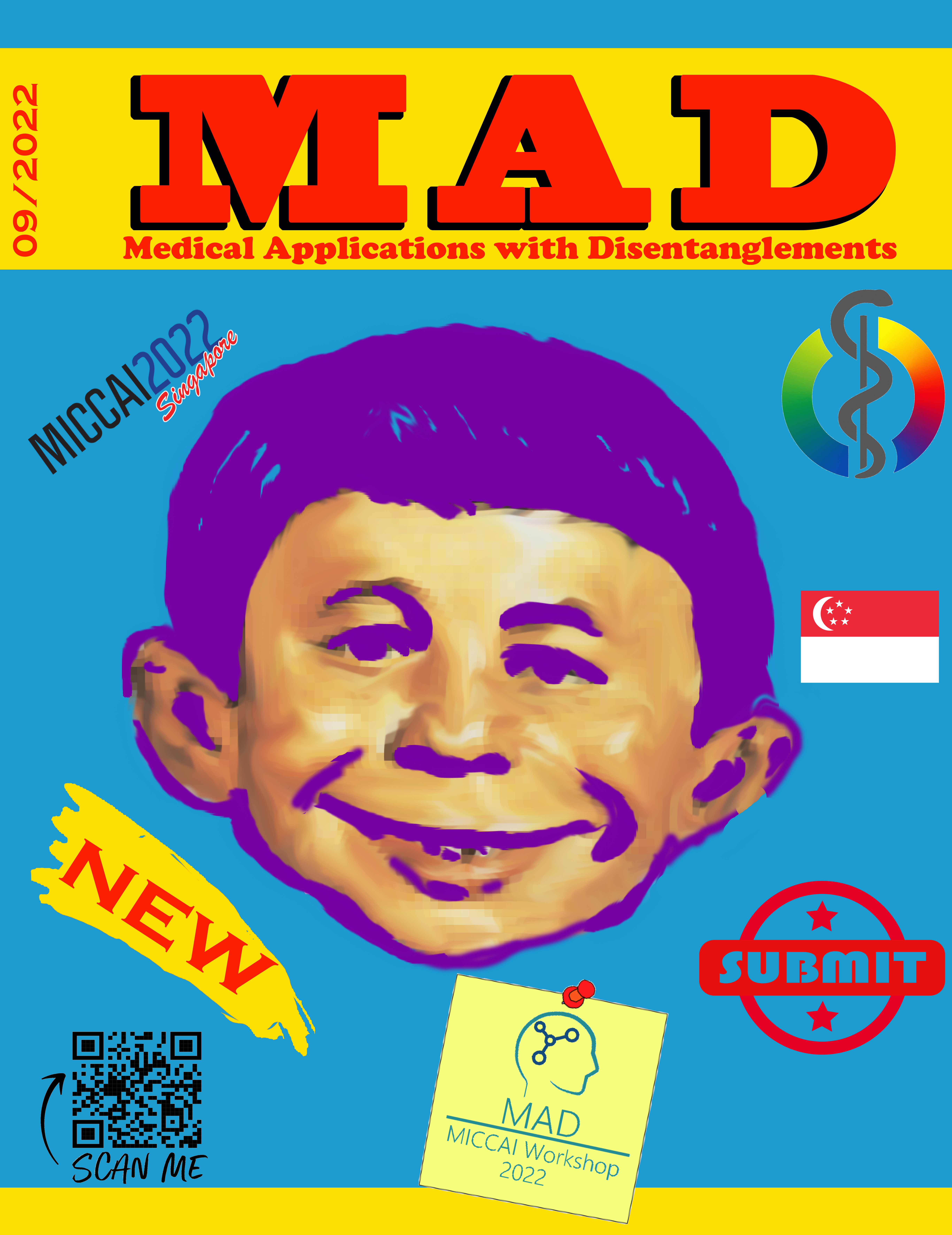22 September 2022
MICCAI Conference
Medical Applications with Disentanglements (MAD)
👋 Welcome to the MICCAI MAD Workshop 2022
Generative models are powerful deep learning methods that have demonstrated great potential for applications in the medical domain. Their performance has continuously improved over the last few years. They address several challenges that are due to the lack of sufficient publicly available medical training data, by providing approaches for synthetic dataset creation, unsupervised pre-training, transfer learning, or generation of missing image modalities. However, generative models often generalize poorly, e.g., to data from different domains and are criticized as black boxes due to a lack of interpretability and controllability. Some of these concerns can be handled by analyzing and disentangling the latent space representation of generative models, encouraging a comprehensive, human interpretable, and compressed representation of the data. The goal of this MICCAI workshop is to analyze the different proposed definitions of disentangled representations, review state-of-the-art methods to achieve disentanglement, evaluate and compare existing quality metrics, as well as to discuss new ideas and methods. By considering the mathematical background alongside applied methods, the workshop will combine theory and practice. Furthermore, these foundations will be discussed in the context of present and future medical applications. Results of the workshop and future directions of the disentanglement approach for medical applications are planned to be summarized in a workshop paper.

Overview Papers and Tutorial
Call for Papers:
We are looking for papers including:
- Disentanglement Definitions
- Disentanglement Metrics
- Analyzing existing Models or Metrics
- Application of Disentanglement Methods onto Medical/Clinical Datasets
- New Disentanglement Models
- Mathematical Background/Theory
We plan to publish the conference results with Springer Proceedings, thus, please use the template you find here. We accept abstracts (1-2 pages), short paper (3-7 pages) and full paper (8+ pages). Submit you paper here. The review process will be double-blind, thus please anonymize your submissions.
If you intend to submit a paper, please send us a short e-mail.
The authors of the selected papers will be invited to be co-authors of an overview article, which will be submitted to a top-tier journal.
Submission Deadline: 25 June 22, 23:59 Pacific Time 03 July 22, 23:59 Pacific Time
Acceptance/Revision/Rejection Notification: 16 July 22 21 July 22 27.07.22
Camera ready paper version: 30 July 2022 05 August 22
Best Paper Award
We will provide a price for the best paper.
Contact
- jana.fragemann(at)uk-essen.de
- Institute for AI in Medicine, Girardetstraße 2, 45131, Essen, Germany
- Tio-IKIM